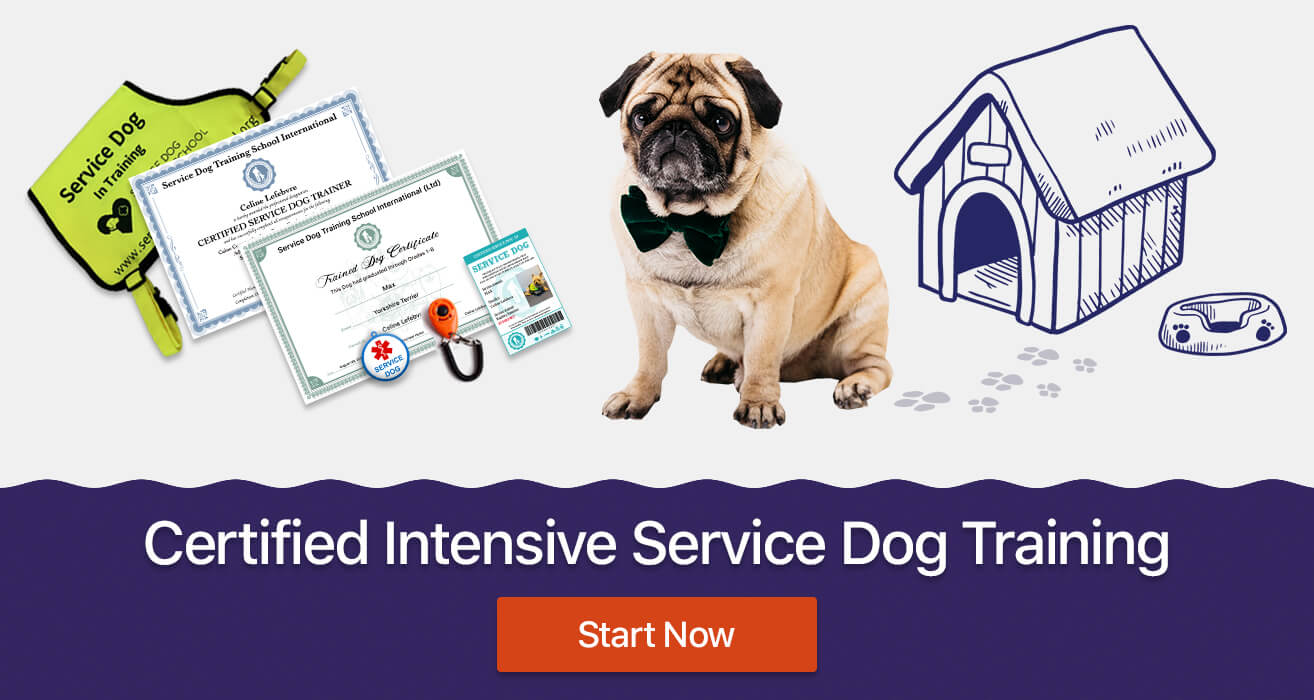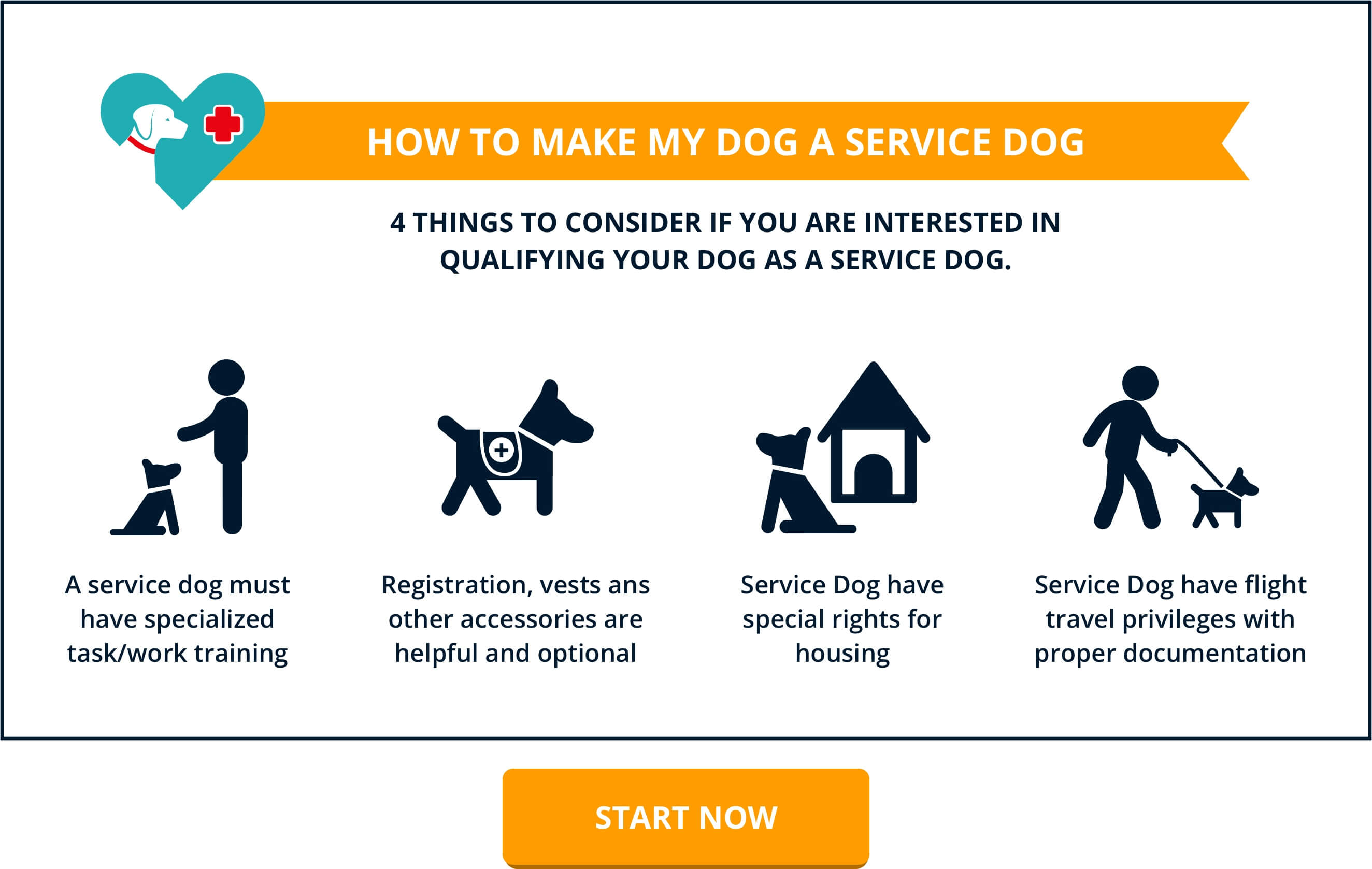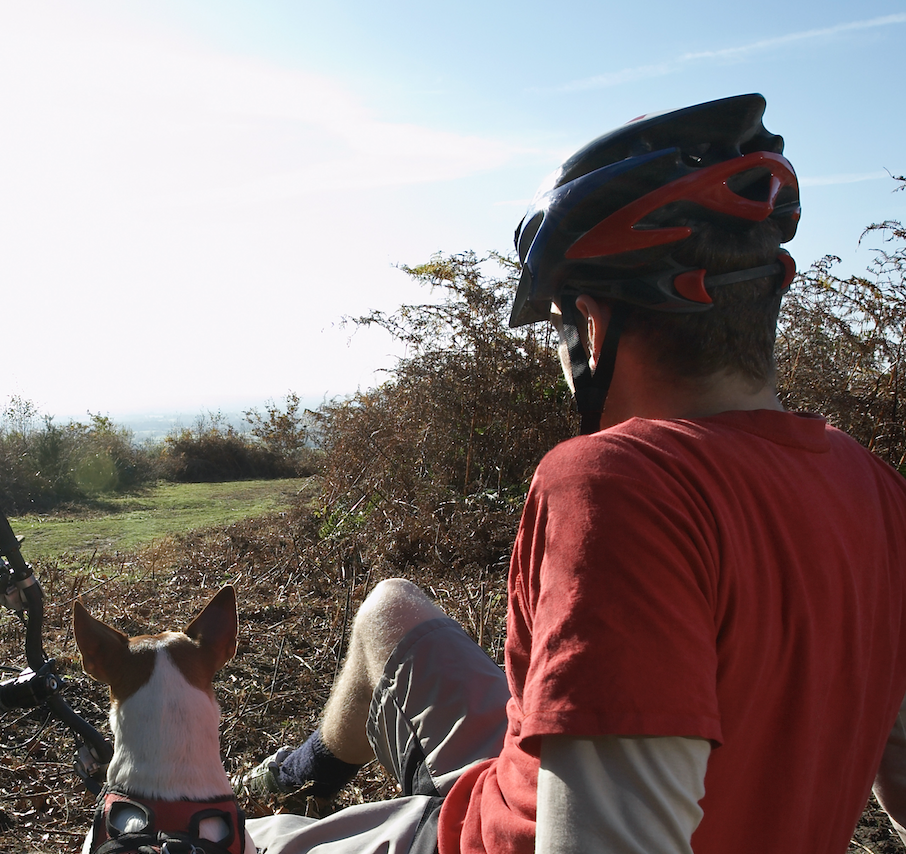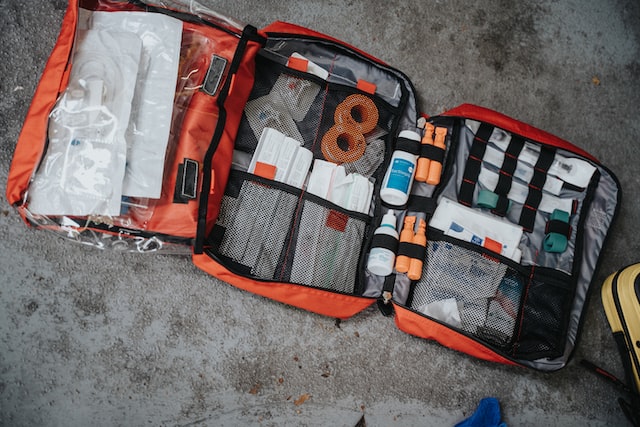- What Are Service Animals?
- What Does “Individually Trained” Mean?
- What Does Specific Tasks / Work Mean?
- What Access Rights Do Service Animals Have under the ADA?
- What Access Rights Do Service Dogs in Training (SDiT) Have Under the ADA?
- Do Service Dogs in Training (SDiT) Have Any Public Access Rights?
- Do Airlines Accept Service Dogs in Training (SDiT)?
- Do Service Dogs & Service Dogs in Training Have to Wear a Vest?
- How to Determine if a Dog Is a Real Service Dog?
- Do Owner-Trained Service Dogs & Service Dogs in Training Have the Same Access Rights as Professionally Trained Service Dogs?
- Service Dog Registry
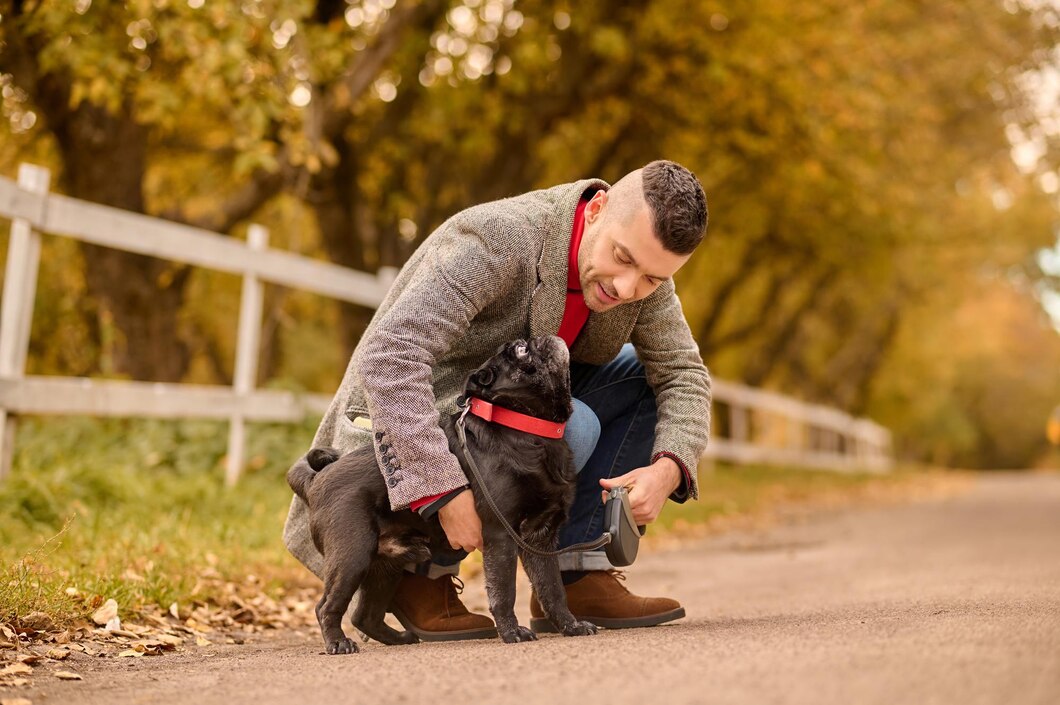
The rights and responsibilities of service animal teams are a topic that is still actively being discussed among members of the service dog community and the public. The more educated society is, the fewer the challenges for service dog teams will be, and the bigger the understanding of business owners and passersby towards them will become as well. This will also increase the respect that all parties in these social relationships have for each other.
Understanding the nature of service animals and knowing their rights and responsibilities refers not only to fully trained service dogs but also to service animals in training. This is especially valid for service dog teams where owners have decided to train their dogs themselves and would like to practice in public places.
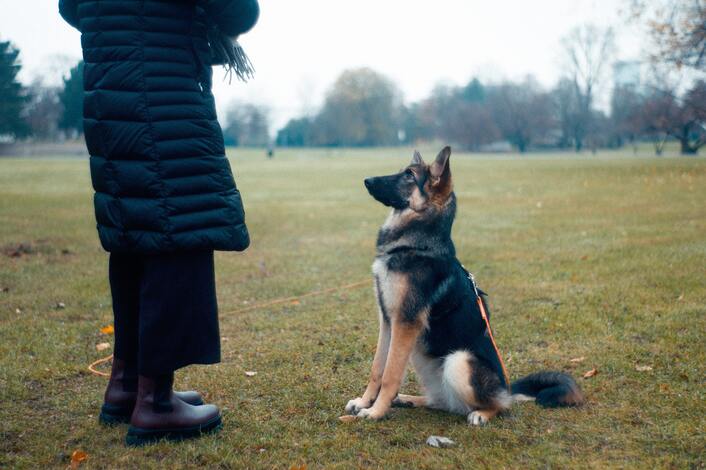
What Are Service Animals?
Service animals are specifically dogs, who have been individually trained in work that benefits a person with a disability. The work that service dogs do must be directly related to a person’s disability. The Americans with Disabilities Act (ADA) defines “disability” as an impairment that substantially limits one more major life activities, and it can be a physical, psychiatric, sensory, intellectual, or other mental disability.
The definition of “service animals” that the ADA gives makes it clear that other domesticated or wild species are not included in it, as well as dogs, who have not been individually trained to perform specific tasks, such as emotional support animals and therapy animals.
What Does “Individually Trained” Mean?
By “individually trained” is meant training a dog in specific tasks that benefit a specific person with a disability. Providing comfort and companionship through their presence is not considered an individually trained task. Also, behaviors that dogs may spontaneously exhibit even if they can be trained as actual tasks, such as laying on the handler’s lap to provide Deep Pressure Therapy, are not deemed individually trained tasks. Service dogs must perform a specific behavior as a response to a verbal or non-verbal cue on a regular basis and without hesitation when asked by their handler. This is valid for both home and outdoor environments.
As mentioned above, companion dogs are excluded from this definition, as they do not do specific work. A dog can be individually trained by a professional trainer/training organization or by the owner themselves.
What Does Specific Tasks / Work Mean?
“Specific tasks” in the context of service animal training mean concrete actions that a dog takes to mitigate the symptoms of a disability and help a person cope with the daily challenges caused by that disability. Examples of specific tasks are:
Pulling a wheelchair, guiding a person with visual impairments, alerting a person to any obstacles on the way; alerting a person when they are about to have an episode (anxiety episodes, cardiac episodes, seizures, their blood sugar levels drop/raise...etc.); retrieving items (mostly medication); providing Deep Pressure Therapy; nose-nudging; pawing at the person; licking at their face/ hand or providing another type of tactile stimulation; reminding a person to take medication; interrupting repetitive behaviors; opening/closing doors; turning lights on/off…etc.
What Access Rights Do Service Animals Have under the ADA?
Service dogs are perceived as medical aids and not as pets. Considering this, they must be granted full public access rights, even to premises that run a “no pets” policy. Service animals must be allowed in all areas of the premise open for use by the public. The ADA prohibits any discrimination against people with impairments and their service animals. It also requires businesses to make “reasonable adjustments” to their policies and procedures as needed in order for people with disabilities to have the same access to their products, services, or premises as everyone else.
A service dog can still be excluded though if he/she is not under the control of his/her handler; he/she poses a direct threat to the health and safety of others; if he/she causes damage or otherwise behaves disruptively; if businesses have to make fundamental alterations in their policies or practice in order to accommodate service dog teams. Further exceptions to the rule can be found on the ADA website, FAQ section, here.
What Access Rights Do Service Dogs in Training (SDiT) Have Under the ADA?
The ADA specifically states that service animals need to be fully trained to have public access rights. This means that SDiT are not covered under the ADA.
Do Service Dogs in Training (SDiT) Have Any Public Access Rights?
Regardless of not being covered under the ADA, SDiT can still have public access rights depending on the state laws. This means that some states regard SDiT as fully trained service animals when it comes to their rights to visit public places. For example, the California Disabled Persons Act provides individuals with impairments who are engaged in service dog training, to bring their dog to public places for training purposes. These places include businesses, housing accommodations, public transportation, and other places open for use by the public. Handlers need to check the local laws on a state level to make sure that their SDiT will be provided with accommodation to public premises. If a service dog or a service dog in training causes any damage, the handler will be liable for that and may be required to pay fees.
You can find more detailed information about SDiT and their rights on a state level, you can take a look at our article “Service Dogs in Training (SDiT) State Laws”.
Both fully trained service dogs and service dogs in training must be always under the control of their handler and be leashed/harnessed or otherwise tethered while in public. There are some exceptions to this rule though. They refer to cases where the presence of training devices would interfere with the ability of the dog to perform the tasks he/she has been trained to.
Do Airlines Accept Service Dogs in Training (SDiT)?
Most airlines do not allow SDiT in the passenger cabin free of charge. However, there are also airlines, that accept SDiT in case handlers can provide some form of verification that their dog is in a process of training. Usually, this means a letter of verification issued by the school/training organization/trainer, training the dog, or assisting an owner to train their dog themselves. Since these regulations vary from airline to airline, handlers need to check the service dog policy of the airline they will be traveling on and contact their representatives in advance.

Do Service Dogs & Service Dogs in Training Have to Wear a Vest?
No, service dogs in the US are not legally required to wear any service dog training gear. Whether you will put a vest/harness/jacket/ID tag depends on you as a handler.
Wearing identification or training gear is not required by law, however, many service dog handlers opt for some kind of identification for their service animals for several reasons:
-It indicates the status of a dog, namely that he/she is on duty or is being trained to do specific work for the benefit of a person with a disability;
-It indicates that a dog should not be distracted as this would interfere with his/her ability to remain focused on the handler and perform the required tasks as needed;
-It indicates that a dog is well-mannered and won’t cause any disruption;
-It notifies the public that a dog has gone or is currently going through basic obedience and specialized training in order to do specific work for the benefit of a person with a disability;
A disadvantage of putting training/identification gear on a service dog or service dog in training is the attention that this might get on the team. This sometimes causes even more stress to service handlers.
Service dog handlers/users often find themselves in situations where they are asked different questions about their service dogs or even about their disability, which is impermissible. The public must not interfere in any way with the work that service animals do for their owners/handlers.
It is important to note that service dog regulations vary and depending on where you are based (in case you are not located in the US and the UK), you may be required to put service dog identification on your dog.
How to Determine if a Dog Is a Real Service Dog?
The increased number of cases where people try to present their pet dogs as service animals only to ensure that they will be granted access to public places, caused many business owners to be suspicious towards service animal teams and proceed with caution.
The ADA allows business owners/employees to ask a service dog handler two questions to verify the animal’s legitimacy:
1. Is this a service dog due to a disability;
2. What tasks he/she has been trained to perform?
Providing comfort and companionship is not deemed an acceptable response to those questions. A person whose dog has gone through both basic obedience and specialized service dog training must be able to explain in their own words what exactly the dog does for them to help them deal with their disability. People with impairments are not required though to reveal their disability.
Furthermore, business owners can watch the dog and how he/she behaves. Service animals will be well-mannered and won’t get easily distracted by any factors in their surroundings. Disruptive behavior, such as pulling on a leash, seeking attention or food, or jumping at people or animals, implies that a dog has not been properly trained, hence he/she is not likely to be a service animal. Of course, service dogs remain dogs, and mistakes can always happen.
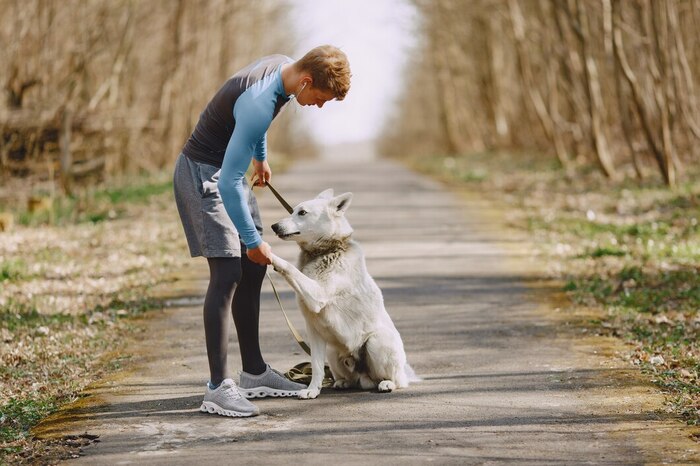
Do Owner-Trained Service Dogs & Service Dogs in Training Have the Same Access Rights as Professionally Trained Service Dogs?
Yes, dog owners are allowed by the ADA to train their dogs themselves. Service dogs and service dogs in training in the US must not be denied access to public premises based on the fact that they are not trained or are being trained by a professional organization/trainer. As long as a dog behaves properly and is able to do specific work for a person with a disability, he/she must be granted access.
Service Dog Registry
Some owners are eager to finish the training process in order to register their service animals. First, it is important to mention that service dog training is a long-term process, and can be even considered a lifetime goal. Second, service dog registration is not a "thing" in the US, at least not a legal requirement. Service dog handlers can register their service animals with different websites, but the registry itself won’t provide their dogs with any access rights.
Service dog registration and/or certification with a certain organization would make sense only if a dog has completed a training program with that organization, that will keep the dog’s information on its records. This can be used as proof of training. However, as mentioned above, this is neither mandatory nor a prerequisite for the dog to be provided with public access rights.